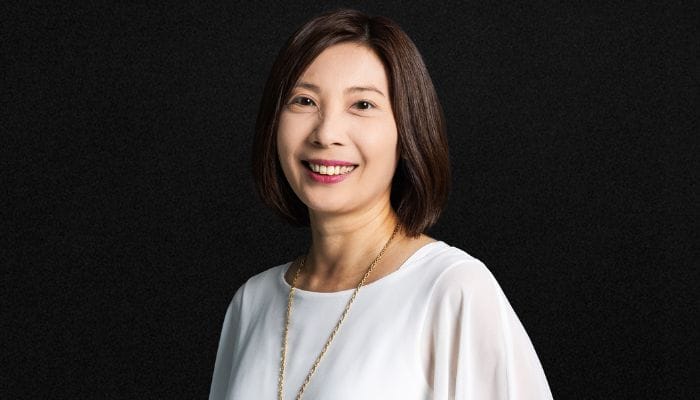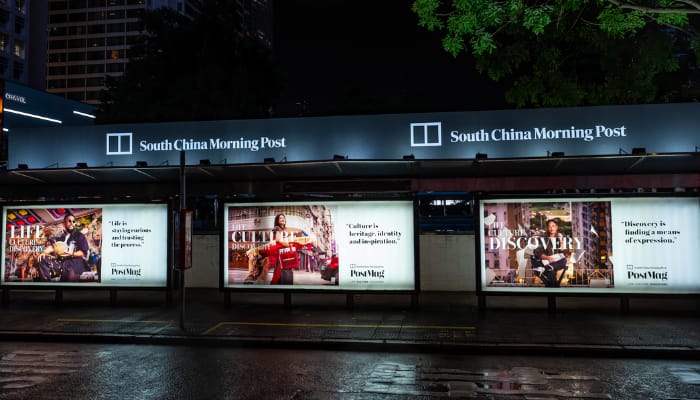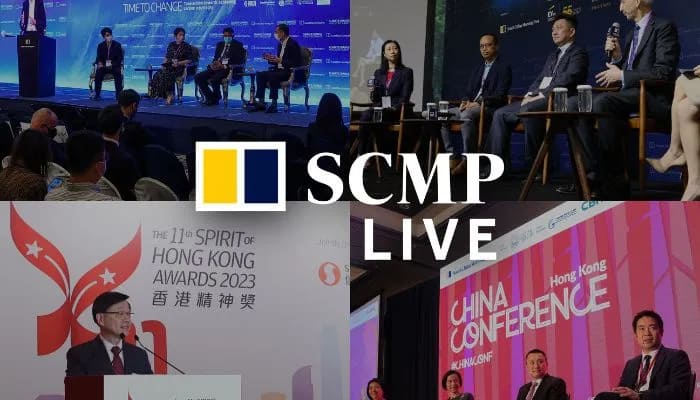After multiple delays and continued discussion about third-party deprecation, Google has announced that it is shelving its plans to phase out third-party cookies. However, it is also worth noting that Google is introducing another solution for Google Chrome, focusing more on a new experience in Chrome that lets people make an informed choice that applies across their web browsing.
“Early testing from ad tech companies, including Google, has indicated that the Privacy Sandbox APIs have the potential to achieve these outcomes. And we expect that overall performance using Privacy Sandbox APIs will improve over time as industry adoption increases,” Anthony Chavez, VP at Privacy Sandbox at Google said.
He further added, “As this moves forward, it remains important for developers to have privacy-preserving alternatives. We’ll continue to make the Privacy Sandbox APIs available and invest in them to further improve privacy and utility. We also intend to offer additional privacy controls, so we plan to introduce IP Protection into Chrome’s Incognito mode.”
With that in mind, the question is: how prepared the industry is in terms of leaning towards more privacy-centric advertising solutions? Are we really prepared to let go of third-party cookies despite Google still having it? To answer these questions, MARKETECH APAC sought insights from various industry leaders to learn more about their insights from this update, and why should the industry continue to strive away from third-party cookies.
Stephen Rhodes, Head of Emerging Markets, APAC at Quantcast
In the context of the Philippines as an advertising market, it’s important to recognise that Google’s announcement does not change the fact that a significant portion of the online landscape is already “cookieless.” Marketers must not overlook this substantial and evolving audience, as it represents a crucial opportunity in today’s digital ecosystem.
Third-party cookies were never intended for advertising purposes anyway, and they are certainly not a reliable means of measurement in a world where consumer preferences can change rapidly across channels in real-time.
Businesses that no longer see the removal of third-party cookies as an issue are the ones who are actually ahead of the situation. Marketers who continue to rely on third-party cookies will effectively only be able to target 50% of their addressable audience as the rest are already browsing in “cookieless” environments such as Safari.
Genelle Hung, Country Manager (SEA) at PubMatic
At PubMatic, we are dedicated to enhancing user privacy while ensuring the vitality of the digital advertising ecosystem. Publishers must continue adopting diverse signals beyond third-party cookies. Google’s decisions and timelines should not hinder our industry’s progress toward a superior supply chain for digital advertising across the open internet. We have seen that alternative signals can provide better outcomes for advertisers and consumers alike and help provide a more sustainable addressability strategy.
We value the collaborative efforts across the industry, including Google’s responsiveness to feedback, and are eager to help shape a more effective, privacy-focused digital advertising landscape. We understand that APIs must evolve in light of Google’s announcement, and we will continue partnering with our peers to inform the specifics and timing. Throughout this transition, PubMatic’s goal remains supporting publishers in maximising revenue while respecting user privacy.
Niall Hogan, General Manager for JAPAC at GumGum
The industry shouldn’t interpret Google’s delay as a reason to abandon privacy-centric advertising. Consumer expectations are clear: they want control over their data and transparency in its usage. This situation presents a golden opportunity for contextual advertising, which should be the primary focus.
Unlike third-party cookies, contextual advertising employs a privacy-first approach by analysing the content of a webpage rather than user behaviour to deliver relevant ads. This method respects user privacy and aligns with their preference for a non-intrusive experience. As consumer awareness of data privacy continues to grow, it is crucial for brands to enhance transparency and build user trust by clearly communicating their data practices and providing users with control over their data.
[Moreover] Google’s new solution remains a question mark. Their focus on “user experience” and “informed choice” sounds promising, but it’s unclear how it will balance privacy with ad effectiveness. The industry should approach these solutions with caution, as any approach that does not prioritise user privacy could face backlash from increasingly privacy-conscious consumers.
Kat Warboys, Senior Marketing Director of APAC, HubSpot
The latest news on third-party cookies is ultimately a win-win for advertisers and consumers. But the multi-year journey on cookie deprecation has been tough on marketers who have been trying to prepare. After all of this, one thing is clear: relying on third parties is no longer enough. Businesses need to take control of their first-party data to get a complete understanding of their customer, especially given the level of personalisation expected by today’s consumers.
Chris Hogg, Chief Revenue Officer, Lotame
Google may no longer be ending third-party cookies by its own hand, but the slow march of progress will still see them rendered obsolete sooner or later. Users and regulators are increasingly privacy-focused and, given cookies will be “opt-in” across the board, there will still be a need for other signals to fill the gaps — especially across channels where cookies are long gone or were never present to begin with.
The fate of third-party cookies will be as a small part of an ever-expanding array of data points, becoming less relevant over time as more privacy-first, platform-agnostic solutions evolve. No one that wishes to remain competitive should think they can take their foot off the pedal of first-party data collection and strategic data collaboration.
Xiaofeng Wang, Analyst at Forrester
It’s no surprise that Google eventually scrapped its cookie deprecation plans after three delays in four years. Most marketers in APAC have seen this coming. According to Forrester’s Marketing Survey 2024, 53% of B2C marketing decision-makers in APAC do not believe that Google will deprecate the third-party cookie, increased from 49% in 2023. This would further dampen advertisers’ urgency to adopt Privacy Sandbox, Google’s initiative to replace third-party cookies with privacy-preserving technologies.
Marketers who strive to use personalisation to improve customer experiences must also adopt a privacy-first approach to earn consumer trust and ultimately win a competitive advantage. Marketers should be transparent and granular about data collection and usage and learn to communicate to consumers that the value is not just in free content or free samples but better personalisation, more customised services, and products that ultimately yield better customer experiences.
Giovanni Gardelli, Vice President of Ads Data Products at Yahoo
We remain committed to supporting efforts that align with our focus on transparency and providing user choice, which includes continuing to invest in our own proprietary Yahoo Identity Solutions. Additionally, we will continue partnering with industry leaders to integrate and develop privacy-friendly solutions enabled by emerging web browser technologies that balance advertiser and publisher goals, while respecting user privacy.
Harshana Ariyaratne, Chief Marketing Officer at Affinidi
At Affinidi, we prioritise consumer rights to data control and privacy. We were encouraged by Google’s initial plan to deprecate third-party cookies, recognising it as a significant step towards honouring consumer data rights and rebuilding trust between consumers and businesses.
While the decision to abandon third-party cookie deprecation may appear to be a setback for user privacy, Google’s commitment to developing solutions that enhance user experience and informed choice is promising. This approach presents an opportunity for businesses to adopt privacy-by-design, user-centric solutions, even in the presence of third-party cookies.
Google’s efforts to create a privacy-conscious and user-centric framework have the potential to rebuild trust and meet evolving privacy expectations. However, the success of these initiatives will hinge on their ability to address the needs of all stakeholders and provide genuine privacy improvements.
Our privacy-by-design suite of solutions within the Affinidi Trust Network, and the Affinidi Iota Framework (the world’s first consent-based data-sharing framework built on open standards) adheres to latest privacy regulations while giving consumers true data sovereignty. By prioritising consent-first principles in digital transactions, we ensure that the data collected is accurate and relevant, enabling brands to create personalised solutions that enhance user experience and satisfaction based on trust and transparency.
Focusing on users’ needs and rights [also] fosters a trustworthy and enjoyable online environment. By embracing this direction, we protect privacy while fostering innovation, creating a digital world that is transparent, responsive, and built on trust.
Timmy Bankole, Director, Advertising Business Operations at South China Morning Post
At SCMP, we are continuing to invest in advertising strategies that put users first, including first-party data, zero-party data, and contextual approaches. We’ve been moving towards an ecosystem that respects user privacy and builds real trust with our audiences.
As an industry, we’ve actually been given more time to get ahead of this and work towards a more user-centric, data-driven ecosystem. Whether that is identity IDs, Topics API, or contextual strategies, the smart play is to reduce dependency on third-party cookies It’s not a revolutionary concept, but it is an important one for us to start addressing head-on. The sooner we can adapt and move in this direction, the better off we’ll all be in the long run.
Benjamin Combe, Senior Director, Data Optimization and Personalization, APAC at Monks
Google’s data shows that 80% of APAC consumers feel that transparency on their data is a must-have, so the move toward giving users greater control over their preferences in Chrome is broadly in line with consumers’ growing expectations for data/privacy controls. It remains to be seen how far these features go. Still, if anything like Apple’s rollout of ATT, it appears likely that these new Chrome controls will essentially see a ‘user-driven’ deprecation of 3rd Party Cookies via opt-outs rather than a Google-enforced one as a tech vendor. Whether it’s best to give users a choice vs deprecating them entirely is a different debate. But, if executed properly, the move toward transparency and controls for end users does align with how consumer sentiments and regulations have evolved over the years.
Tyler Stewart, Media Solutions Architect Lead, APAC at Monks
Google’s change of step on 3PCD doesn’t change the imperative for privacy-centric advertising strategies—between regulatory changes and 3PCD across other browsers and devices, the need for privacy-preserving alternatives is still as pressing as ever.
At the end of the day, consumers globally have significant concerns about their data privacy and want the businesses they transact with to address these and treat the information they share with respect – rather than as a commodity. It was never really Google’s place to be the arbiter of the private web (in many ways, it never wanted to be) and its decision here will hopefully better enable the industry at large to act more openly and collaboratively to develop solutions that meet both the needs of the industry and the rights and expectations of consumers.
Brands that have already started exploring initiatives like the judicious use of first-party data, consent management, modeled measurement solutions, and conversion recovery mechanisms will continue to see benefits from these investments and should continue down this road. Those who haven’t shouldn’t see this announcement as an excuse to “kick the can down the road” like the many 3PCD postponements that have come before. To avoid being left behind – both in terms of advertising capability and trust with their customers – they, too, need to take the path towards privacy.
Despite the shelving of third-party cookie deprecation, industry leaders continue to advocate for the exploration of alternative measures. This encouragement underscores the necessity of evolving towards a privacy-by-design advertising ecosystem. Such a shift is crucial not only for maintaining consumer trust but also for fostering a more sustainable and ethical digital landscape. By prioritising privacy in the foundational design of advertising practices, we can ensure that the future of digital marketing aligns with the growing demands for user data protection and transparency.





















